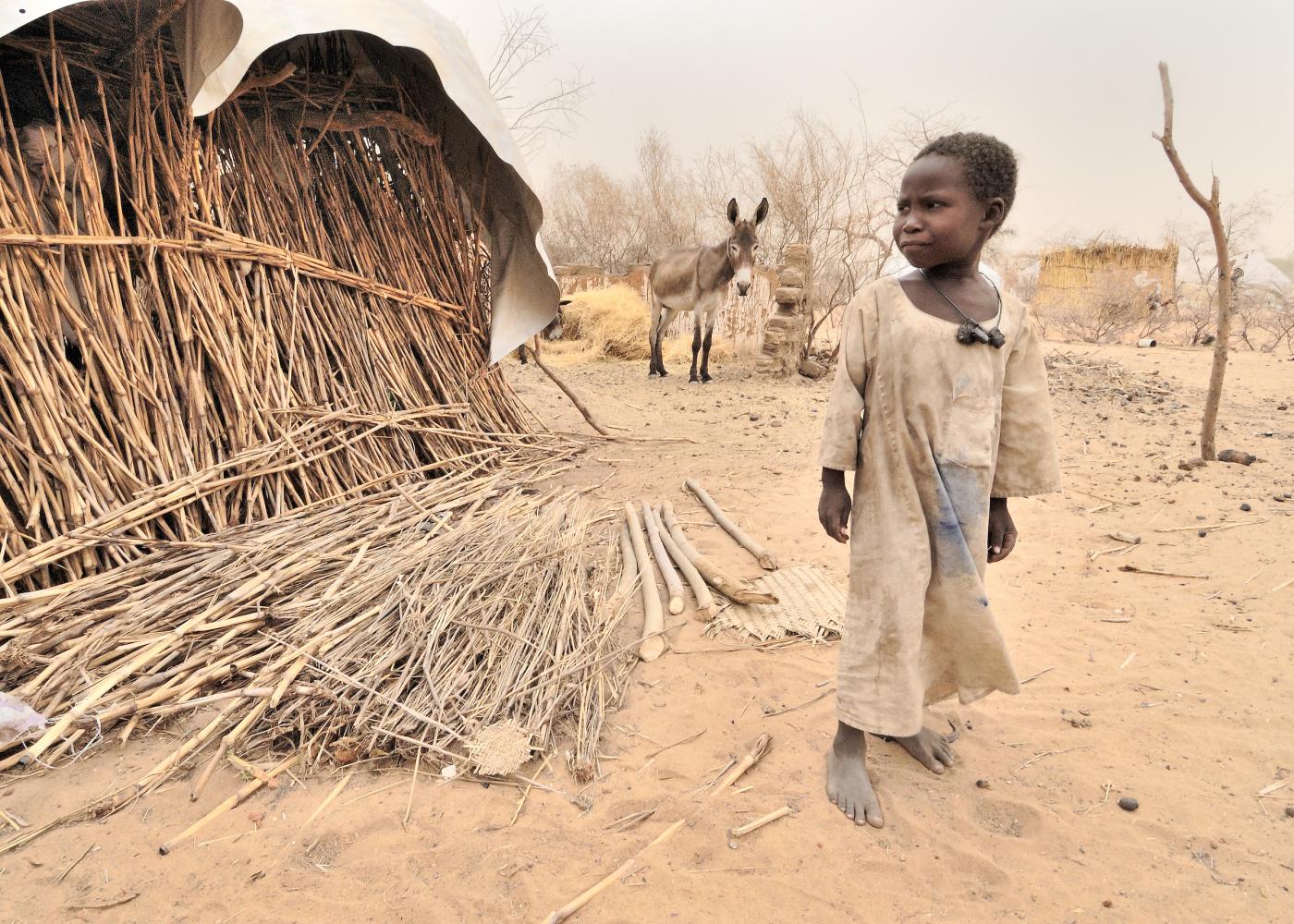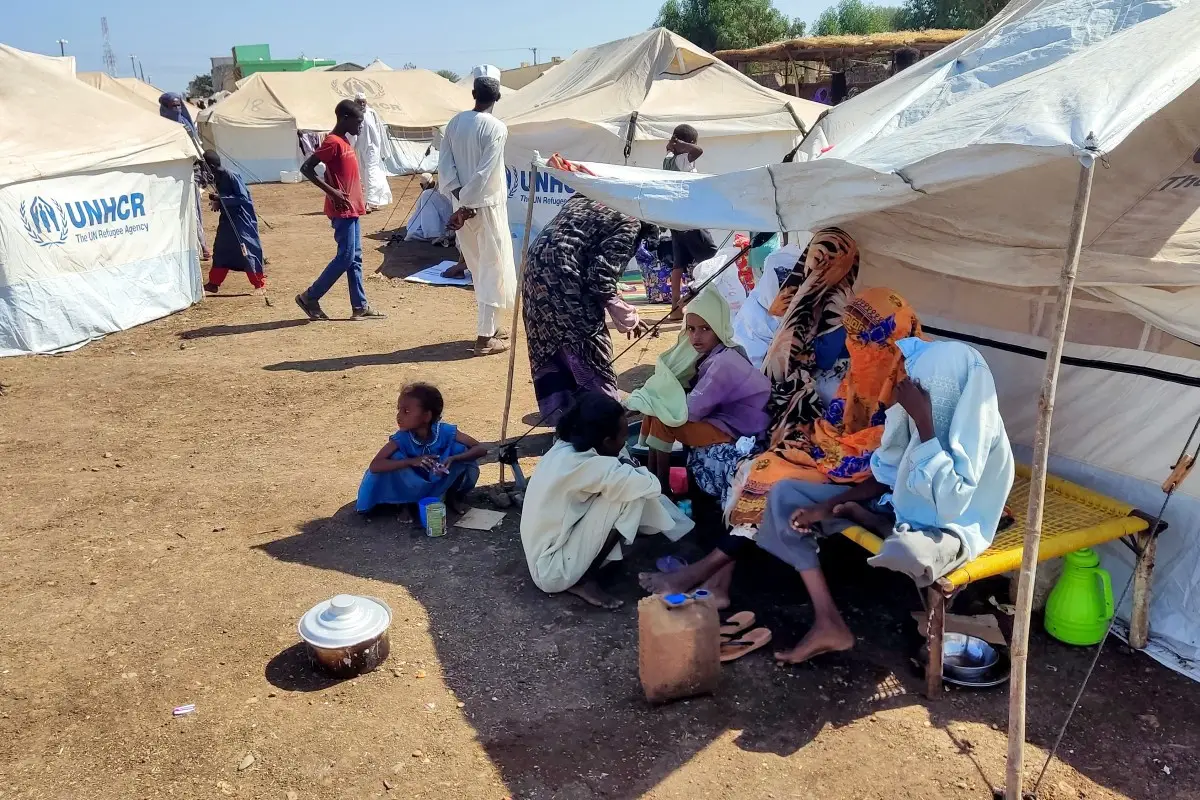The warning from Jan Egeland, head of the Norwegian Refugee Council (NRC), is both a dire proclamation and a call to action: Sudan, a nation rich in cultural heritage and natural resources, is spiraling into a failed state.
The convergence of relentless civil conflict, humanitarian collapse, and international apathy has created a toxic trifecta that threatens not only Sudan but also regional and global stability. The world stands at a critical juncture—will it heed the alarm or turn a blind eye?
The Anatomy of Collapse
For 19 harrowing months, Sudan has been ensnared in a brutal power struggle between its army and the paramilitary Rapid Support Forces (RSF). What began as a political tussle has metastasized into a full-blown civil war, unleashing violence of catastrophic proportions. Over 10 million Sudanese have fled their homes, and the country teeters on the brink of mass starvation. As the World Health Organization (WHO) grimly noted in September, starvation “is almost everywhere” in Sudan, with food insecurity threatening millions.
Civil society—the backbone of any nation—has eroded as armed factions proliferate. In addition to the two main warring entities, smaller “ethnic armies” are wreaking havoc, looting communities, and targeting civilians. Egeland describes these groups as “going berserk,” underscoring the unchecked violence tearing through the fabric of Sudanese society.
The Humanitarian Abyss
The humanitarian crisis in Sudan is unparalleled in its scale and severity. Soup kitchens have shuttered due to underfunding, leaving millions without access to basic sustenance. Aid agencies, hamstrung by limited resources, find themselves merely “delaying deaths instead of preventing them,” according to Egeland. Hunger has become a weapon of war, a deliberate tactic to weaken opposition and devastate communities.
The numbers are staggering. Some food security experts estimate that as many as 2.5 million people could die from hunger by the end of this year. This is not just a crisis but a slow-motion catastrophe that the international community is failing to address adequately. Egeland’s plea is clear: the global response is insufficient. Sudan is the world’s largest humanitarian emergency, yet its aid operations remain critically underfunded.

Ethnic Cleansing and the Threat of Genocide
Beyond the immediate humanitarian toll, Sudan faces a darker specter: ethnic cleansing and potential genocide. Rights groups have raised alarms over targeted violence against certain ethnic groups, a chilling echo of past atrocities in the region. The risk of ethnic conflict escalating into systematic extermination cannot be overstated. Yet, peace talks between the RSF and the army have yielded no meaningful progress, perpetuating the cycle of violence.
The collapse of Sudan has implications that extend far beyond its borders. As Egeland warns, Europe and neighboring regions could face a significant refugee crisis if the situation continues to deteriorate. Over 10 million displaced Sudanese are seeking refuge within and beyond the country’s borders, straining already fragile host nations. The international community, particularly in Europe, must recognize that investing in aid, protection, and peacebuilding in Sudan is not merely altruistic but a pragmatic strategy to avert a larger crisis.
Sudan’s instability also poses a direct threat to regional security. The proliferation of armed groups, coupled with a power vacuum, creates fertile ground for extremist organizations to exploit the chaos. Neighboring countries, already grappling with their challenges, risk being destabilized by the spillover effects of Sudan’s conflict.
A Moral and Strategic Failure
The global response to Sudan’s crisis has been tepid at best. Despite the glaring urgency, international funding for humanitarian operations in Sudan falls woefully short. Aid agencies are scrambling to address immediate needs, but without robust support, their efforts are akin to bailing water from a sinking ship.
Moreover, the lack of concerted diplomatic action to mediate the conflict is a glaring failure. The warring factions—the army and RSF—continue to prioritize their power struggles over the welfare of the nation. As Egeland aptly states, “The war will stop when these warlords feel they have more to lose by continuing fighting than by doing the sensible thing.” Achieving this shift requires sustained international pressure, including targeted sanctions, peacekeeping efforts, and a coordinated push for inclusive dialogue.

A Multi-Pronged Approach
Addressing Sudan’s crisis demands a comprehensive strategy that integrates immediate humanitarian relief with long-term stabilization efforts. The following steps are critical:
- Humanitarian Aid Scale-Up
The immediate priority is to prevent further loss of life. This requires a dramatic increase in international funding for food, medical aid, and shelter. Wealthier nations and multilateral organizations must step up, recognizing that their inaction has dire human and geopolitical consequences. - Strengthening Civil Society
Rebuilding Sudan’s social fabric will be a monumental task, but it is essential for the country’s recovery. Support for local organizations, women’s groups, and community leaders can help restore a sense of normalcy and cohesion. - Mediating Peace Talks
The international community must play a more active role in facilitating peace negotiations. This includes pressuring both the army and RSF to cease hostilities and engaging smaller armed groups to halt civilian attacks. - Accountability for Atrocities
Ensuring accountability for war crimes and human rights violations is crucial. The International Criminal Court (ICC) and other mechanisms should investigate and prosecute perpetrators to deter future atrocities. - Regional Cooperation
Neighboring countries and regional bodies, such as the African Union, must collaborate to address the spillover effects of Sudan’s crisis. This includes managing refugee flows and preventing the spread of armed conflict.
The Moral Imperative
Major global powers have a unique responsibility to influence the trajectory of Sudan’s crisis. The United States, European Union, China, and Gulf states all have vested interests in Sudan, ranging from strategic alliances to economic investments. These actors must leverage their influence to broker peace and support stabilization efforts. A unified, strategic approach could shift the calculus for Sudan’s warring factions, making peace a more attractive option than continued conflict.
Sudan’s descent into chaos is a stark reminder of the fragility of human progress. The world’s inaction in the face of such suffering reflects a moral failure that history will judge harshly. The question is not whether Sudan can be saved—it is whether the world will choose to act before it is too late.
As Egeland poignantly noted, “The parties are tearing down their own houses; they are massacring their own people.” This tragic self-destruction can only be halted through collective resolve and action. Sudan’s people, like all people, deserve a future free from fear, hunger, and violence.
A Call to Action
Sudan stands at the precipice of total collapse, and the stakes could not be higher. The nation’s fate is a litmus test for the international community’s commitment to peace, security, and human dignity. Failure to act will not only condemn millions of Sudanese to unimaginable suffering but also destabilize a region already fraught with challenges.
The path forward requires courage, compassion, and cooperation. It demands that the world recognize Sudan’s plight not as a distant tragedy but as a crisis with profound global implications. Only through sustained humanitarian support, diplomatic engagement, and accountability can Sudan’s descent into a failed state be averted.
The time to act is now. For Sudan, for its neighbors, and for the world, the cost of inaction is far too great.



